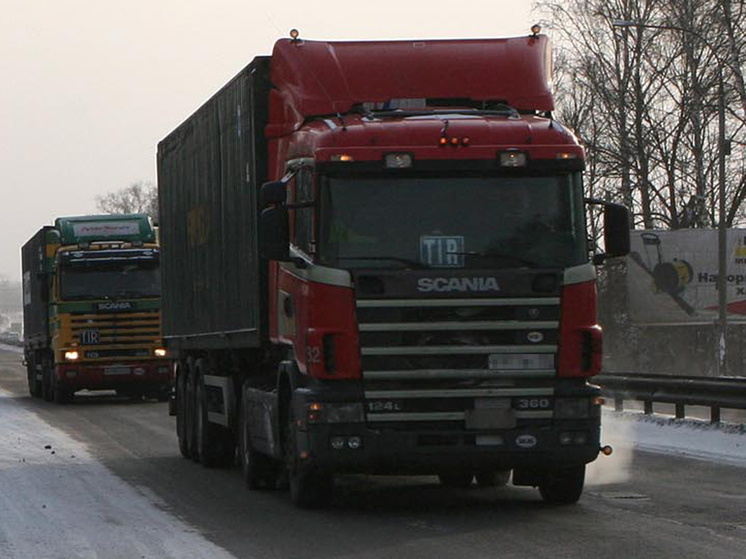The neighboring country is harming the Russian economy with enhanced inspections of freight transport
Lithuania is again causing problems for companies and industrialists from the Kaliningrad region, creating with its actions an artificial traffic jam on the border with the Russian Federation. As a result of such sabotage, about two hundred trucks are forced to stand in a huge traffic jam for many hours. Moskovsky Komsomolets learned about the scale of the problem from an expert from Kaliningrad, who is well aware of the difficulties local businesses face in their work.
 < span itemprop="height" itemscope itemtype="https://schema.org/QuantitativeValue">
< span itemprop="height" itemscope itemtype="https://schema.org/QuantitativeValue">
According to Kaliningrad customs officials, overnight the queue of trucks at the Chernyshevskoye international automobile checkpoint increased to 155 vehicles, including those located in the neutral zone. According to Senator from the Kaliningrad region Alexander Shenderyuk-Zhidkov, Lithuanian customs officers have tightened control of trucks leaving the region. Each of the heavy trucks is now subject to inspection, including x-rays, and this procedure increases the time it takes to cross the border, complicating Kaliningrad transit.
Over the past 24 hours, employees, for example, allowed less than 60 cars through. The situation is complicated by the fact that Chernyshevskoye is the only currently operating checkpoint on the border of Lithuania and the Kaliningrad region, serving freight and passenger vehicles. As an alternative, carrier companies can use a ferry, but getting there, according to local drivers, is not very easy.
“About 20 ferries operate, but there is such a queue that you can’t get through,” warns on social media network truck driver Denis from the Kaliningrad region. In addition, this requires additional time and money.
“The situation is difficult,” Georgy Dykhanov, chairman of the Kaliningrad regional branch of the all-Russian public organization “Business Russia,” said in an interview with MK. “This is damage not only to the economy of the region, but also to the economy of the country, to all citizens, because these costs will affect the final price of products , which will hit the Russian markets.
Most likely, our country will need to take some retaliatory steps towards Lithuania, but for now it is difficult to say exactly how to act in this situation. It is clear that there is no sovereignty in Lithuania’s actions, and this crisis is no longer sluggish, but is becoming more acute. Enterprises do not receive goods, which means income. People don't get paid. Products that move in our direction are also becoming more expensive.”
— They found themselves in a very difficult situation. A person came to work as a driver, but is forced to be in the role of a so-called “waiter,” spending extra time in his car. The border is not a hotel and there are no appropriate conditions for living there. This attempt by the Lithuanian side to ruin the life of a Russian driver looks very ugly and clumsy, because they think that they will cause hatred towards the country's authorities, but in fact they only increase the unity of the people and the negativity towards Lithuania. Because they punish ordinary people, and not specific officials.
– Firstly, this is agricultural production; we export a lot of things in this area. Secondly, this is the furniture industry, which has lost Western markets and now works only with Eastern ones. But mechanical engineering products have not been exported this way for a long time — steam is used for them, but this means completely different terms, different logistics, and therefore an increase in price. Everything that our region is rich in, and we have a lot of production, including fish and canning, everything that we are useful to our country — the Lithuanian side, without declaring an official blockade, is trying to block.
< /p>
– Of course, driver support is very important. I personally know the heads of several enterprises whose drivers are faced with this problem, who are trying to help them. For example, organize hot meals, ordering them from local producers, or, for example, delivery of fuel. And, of course, they pay drivers for downtime. But downtime also affects the price of the product, and this is not beneficial to anyone. It would be understandable if the other side got something from this, but this is not the case. They also suffer losses due to their actions, because they also receive money for the passage of goods through their country.


